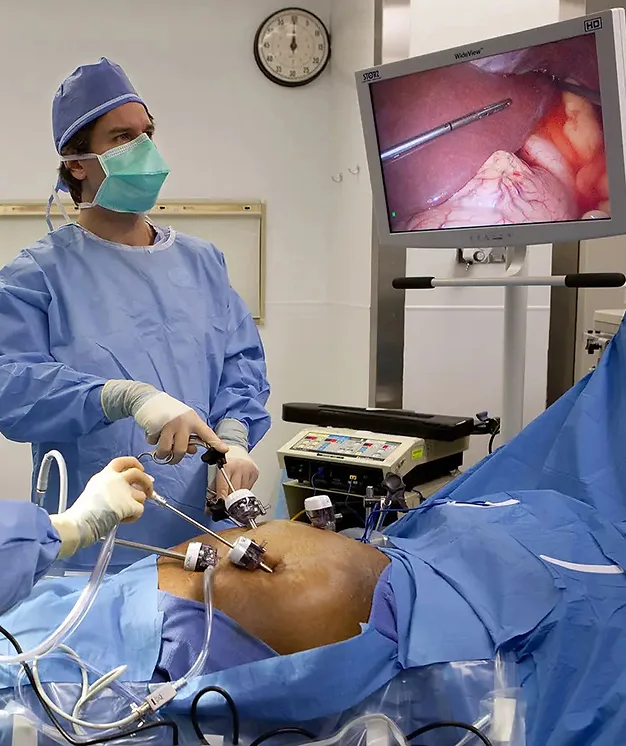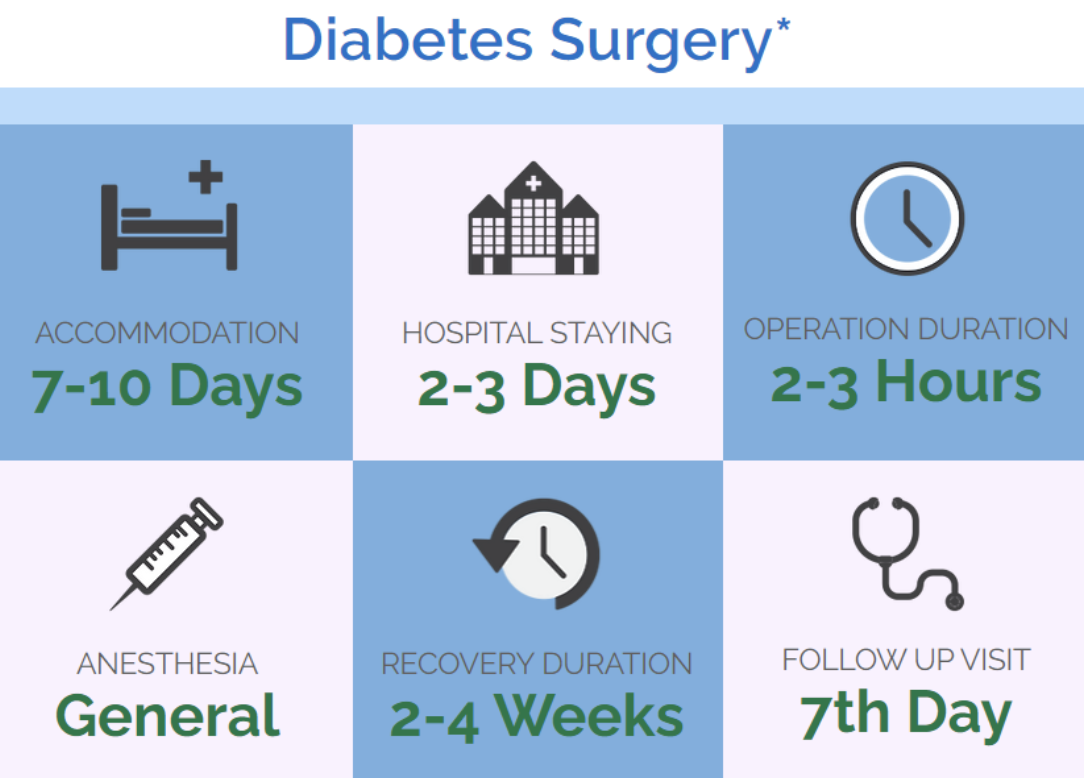Diabetes surgery is aim to eliminate insulin resistance in the body. Insulin is used to treat Type 1 diabetes but in the case of Type 2, a change in lifestyle, diet, and medication is required and if organ damage has begun, surgery is required.
Diabetes surgery is performed on people who have Type 2 diabetes, who are obese, have high blood sugar levels and whose blood glucose levels do not improve despite medication and insulin use. Diabetes surgery is performed as closed surgery, by removing half of the stomach is removed and altering the location of the small intestine. With this change, the insulin secretion warning comes from the pancreas, the efficiency increases, so that Type 2 diabetes completely disappears. The benefit of this surgery is that it is less painful than open surgery; it does not cause lung problems; and the recovery period is short and without scars.


After diabetes surgery, frequent hunger will be impossible and since there will be lack of appetite, less food will be consumed. After some time, the body will adjust to its normal routine and the patient will feel much better. Following diabetes surgery, water consumption is critical because limiting both food and water will make the patient sluggish. Moreover, your doctor will monitor your eating habits for 6 months after the operation, since event a small level can cause the sugar to return.